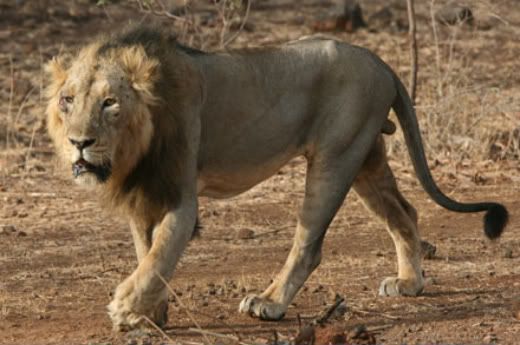Riots have spread to new areas of London while looting erupted in the cities of Birmingham, Liverpool and Bristol as Britain's worst violence in decades extended into the third night.
Shops and cars were set ablaze across London late on Monday and early on Tuesday as authorities struggled to contain the unrest in the capital city which will host next summer's Olympic Games.
Looting by groups of hooded youths spread to Ealing in west London and Camden in the north. Television pictures showed groups of men running through the streets and smashing shop windows.
They also set fire to buildings in Croydon, a south London suburb, and Clapham, where they looted shops and cash machines and set fire to at least one shop.
Local residents in Croydon were evacuated due to the spreading fire, while the Guardian newspaper quoted a nearby officer as admitting: "We can't cope. We have passed breaking point."
London Fire Brigade received 264 emergency calls overnight Saturday and attended 49 fires in the Tottenham area.
The violence, which began in the northern Tottenham district on Saturday, also spread to Peckham and Lewisham. In Peckam, flames leapt into the air from a torched building, while rubble was strewn across the street. People walked in and out of shops looting.
Police with riot shields responded by charging them as they tried to seal off an area around Hackney Central station in the east of the city. Dozens of officers have now been deployed to the streets of Hackney.
Wealthy neighbourhoods were not spared with rampagers forcing their way into Michelin-starred restaurant The Ledbury in Notting Hill before stealing diners' phones, plates off the tables and attempting to take the till.
Unrest spills out
But in a sign that the unrest had spilled outside of the capital, attackers smashed shops and looted property in the central England city of Birmingham.
West Midlands Police confirmed they had made 87 arrests as youths ran amok in Birmingham centre overnight, smashing shop windows and looting merchandise. The force also said that a police station was on fire.
Liverpool police said a small number of vehicles were set on fire and reported some criminal damage. They said officers were responding to a number of isolated outbreaks of disorder," including vehicles set ablaze and buildings attacked in the city's southern neighborhoods.
Police reported "copy-cat violence" in Bristol in the southwest and have urged people to avoid the city centre after 150 rioters went on the rampage in "volatile scenes''.
Al Jazeera correspondent Barnaby Philips, reporting from Tottenham, said lots of people are out on streets but there is of anguish and dismay about what has happened in this community over the weekend.
"People realise that jobs, property and investments have been damaged for years to come, and they are very distraught about it.
"Thankfully Tottenham is calm as of now."
Crisis meeting
Meanwhile, the office of UK Prime Minister David Cameron, who has faced media criticism for being away on holiday during the riots, announced he would cut short his trip and return to London to chair a crisis meeting on the unrest.
"The violence we've seen, the looting we've seen, the thuggery we've seen, this is sheer criminality ... these people will be brought to justice, they will be made to face the consequences of their actions," said Theresa May, the interior minister, who also cut short her holiday because of the riots.
Scotland Yard commander Christine Jones said tonight's events were "simply inexcusable". The force has so far arrested 239 people and charged 45 people over the escalating riots. It said "this is a constantly changing picture". At least 35 police officers were injured in the unrest at the weekend.
A 11-year-old boy was among those arrested.
Tim Godwin, the acting Metropolitan Police Commissioner, earlier urged parents to "start contacting their children" to find out where they were before slamming "spectators getting in the way of the police operations."
Al Jazeera's Andrew Potter, reporting from Lewisham, said the area's streets had been blocked off by riot police, but there did not appear to be any end in sight to the violence.
Violent skirmishes have taken place between police and rioters. Al Jazeera's Charlie Angela reports from Hackney.
"The initial cause of violence in Hackney is said to be the use of 'stop and search' power on black youths by the police," he said.
"A large proportion of the black community in London believes that police use 'stop and search' powers far too much. They feel they have been unfairly stopped using those powers.
"The interior minister's effort to contain the violence has failed to stop the spread to many other areas of London."
As police struggled to contain the spiraling disorder, they ordered London football clubs to call off matches.
The violence, which is unrelated to any football issues, began near Tottenham's ground in north London over the death of Mark Duggan, a 29-year-old man who was shot dead by the police on Thursday.
Very few details of Duggan's death have been released. Police said initially an officer was briefly hospitalised after the shooting and media reports said a bullet had been found lodged in the officer's radio.
Although a gun was recovered from the scene, The Guardian newspaper reported that the bullet in the radio was police-issue, throwing doubt on speculation that Duggan had fired at an officer.
Britain's police watchdog is investigating the incident and would not comment on the report.
Government officials branded rioters as "opportunistic criminals" and said the violence, the worst in London for years, would not affect preparations for next summer's Olympic Games.
History of racial tension
?
In the south London neighborhood of Brixton - the scene of riots in the 1980s and 1990s - youths smashed windows, attacked a police car, set fire to garbage bins and stole video games, sportswear and other goods from stores.
Like Brixton, Tottenham is an impoverished area with an ethnically diverse population, a large black community and a history of unrest. Tottenham was the site of the 1985 Broadwater Farm riots, a series of clashes that led to the fatal stabbing of a police officer and the wounding of nearly 60 others - and underscored tensions between London police and the capital's black community.
The residents resent police behaviour, including the use of stop and search powers.
There was looting in a number of boroughs in north, east and south London by small and mobile groups. And the youths appeared to have used a free message service on Blackberry mobile phones to coordinate attacks on shops and police.
Research In Motion, the Canadian manufacturer of the smartphones, said it would work with British authorities, but gave no details on what information, if any, it would give the police.
"We feel for those impacted by this weekend's riots in London. We have engaged with the authorities to assist in any way we can," RIM spokesman Patrick Spence said in a statement.
"It's not so easy to explain the violence of the past two days," Al Jazeera's Phillips, reporting from the riot-hit district of Brixton, said earlier.
"It began in the north London neighbourhood of Tottenham - the catalyst was the killing by police of a black man."
British politicians say racial tensions or poverty do not justify what has happened in the last couple of days.
"The riots that took place in Tottenham on Saturday night and subsequent disturbances in other parts of London are totally unacceptable," Interior Minister May said.
"Once again I would like to pay tribute to the brave police officers who put themselves in harms way to protect the public, their property and local businesses."
Nick Clegg, Britain's deputy prime minister, echoed the sentiment, "It was needless, opportunistic theft and violence, nothing more, nothing less. It is completely unacceptable."
"There are different interpretations of the events. On the [political] left, people would be blaming policing methods perhaps, and also be looking at unemployment, poverty and cuts in social welfare," our correspondent said.
"On the [political] right, people are more vigorously condemning the looting and 'opportunist copycat' violence that has swept London."
London police criticised
The London police force has been criticised for its handling of recent large protests against the austerity measures, and its chief and the top counter-terrorism officer recently quit over revelations in the News Corp phone-hacking scandal.
While Britain's politicians were quick to blame petty criminals for the violence, neighbourhood residents said anger at high unemployment and cuts in public services, coupled with resentment of the police, played a significant role.
"Tottenham is a deprived area. Unemployment is very, very high ... they are frustrated," Uzodinma Wigwe, 49, who was made redundant from his job as a cleaner recently, said.
Steve Kavanagh, a deputy assistant commissioner with the London force, said the first priority had been to ensure the safety of fire crews who came under attack as they tried to put out blazes.
"We weren't flat-footed," he said. "Priorities had to be determined and the resources were put where the greatest risks were. We experienced a very rapid increase in levels of violence."
The riots come at a time of deepening gloom in Britain as the pain from economic stagnation is exacerbated by deep public spending cuts and tax rises aimed at eliminating a budget deficit that peaked at more than 10 per cent of GDP.
http://english.aljazeera.net/news/europe/2011/08/2011881845588629.html










0 comments:
Post a Comment